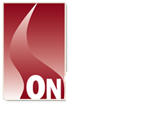CONSULTING AND TRAININGS AIMED AT CREATING TRULY HARMONIOUS TEAMS AND WORKPLACES

ONTRACK’s Diversity, Equity & Inclusion services are designed to provide participants with essential current concepts, frameworks, and best practices related to providing effective services to diverse populations, including:
Our cultural competence trainings and consulting support our clients in:
- Establishing a working definition of culture, its role and purpose.
- Learning the concepts and principles of cultural and linguistic competence.
- Recognizing important factors that guide the development of culturally competent organizations.
- Achieving and sustaining cultural competency using internal assessments and plans.
- Gaining a greater understanding of the impact and practical uses of data for achieving equity.
Culturally and Linguistically Appropriate Services (CLAS) Standards are a set of recommended action steps intended to advance health equity, improve quality, and help eliminate health care disparities.
Implementing CLAS Standards will help your organization:
- Build skill sets so you and your staff may more effectively serve a diverse client base.
- Improve client enrollment, engagement, retention, and outcome.
- Fulfill cultural competency requirements for various funding sources.
- Enhance your reputation in the community by being culturally responsive.
- Create a more inclusive environment for staff and volunteers.
- Attract top talent to work in your organization.
We support our clients in eliminating imbalances and incongruities between the treatment of racial groups, ultimately, improving the lives of people of color. We do this by:
- Assessing the organization’s current climate, efforts, and readiness.
- Identifying successes, challenges, and needs.
- Building internal support to generate buy-in, commitment and involvement.
- Developing strategic plans to address impact on organization’s policy, practices, systems, and/or structures.
- Facilitating trainings including didactic and experiential learning.
- Ensuring a plan is in place for continuing this work long-term.
- Evaluating implementation efforts.
We support our clients in ensuring everyone has a fair and just opportunity to attain their highest level of health. We do this by:
- Assessing health risks, outcomes, accessibility, and community health data.
- Assessing current community programs and other resources.
- Identifying gaps and disparities among population groups.
- Developing strategic plans to address impact on organization’s policy, practices, systems, and/or structures.
- Facilitating trainings including didactic and experiential learning.
- Evaluating implementation efforts.
Contact Us
Interested in discovering how The Philani Institute can assist your organization in enhancing diversity, advancing skills, and fostering inclusivity? We’re here to support you. Our training and services are fully adaptable to align with your organization’s requirements.




